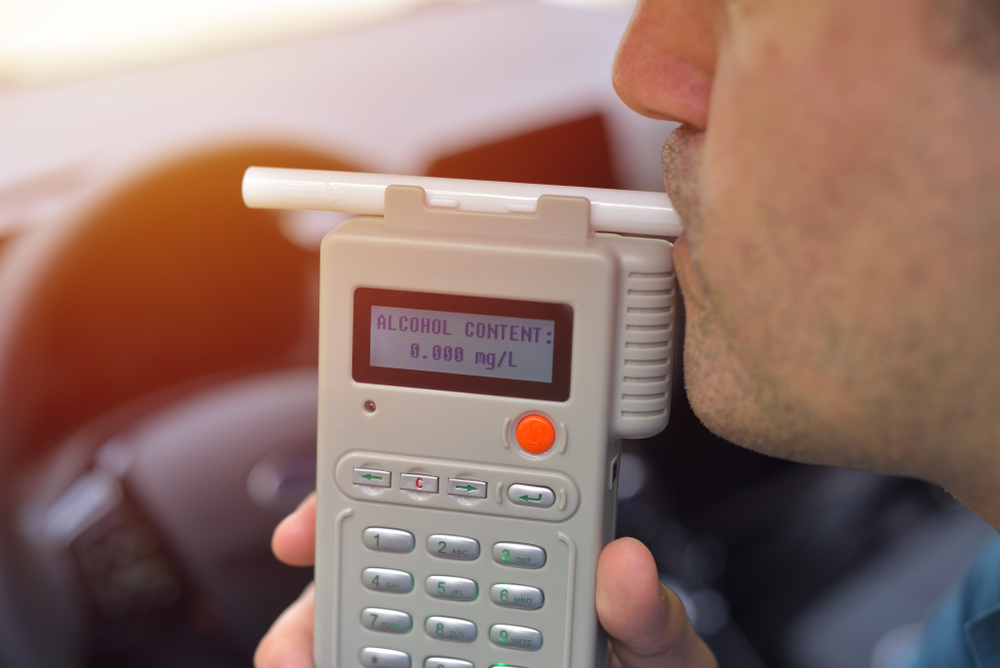Don’t let a DUI case disrupt your life. Contact Rathburn Law for skilled representation in Indianapolis. Our dedicated DUI attorneys are ready to fight for your rights and work towards the best possible outcome in your case.
Call 317.671.8965 for a free initial consultation.
Can I Be Arrested for DUI After the Fact?

Discovering whether you can face a DUI arrest (or Operating While Intoxicated “OWI”) after an accident has occurred or after leaving the scene is crucial for anyone involved in such incidents.
The short answer is yes, you can be arrested for a DUI after the fact.
This may come as a surprise to some, but the criminal justice system allows for charges to be filed once sufficient evidence, such as witness testimony, blood test results, or police officers’ observations, becomes available.
Can You Be Arrested for a DUI After Going Home for the Night?
Leaving the scene and going home does not necessarily shield you from legal consequences if there’s enough evidence to suggest DUI involvement.
Police officers can use specific and articulable facts derived from their investigation to establish probable cause. This could include observations made at the scene, chemical evidence from breath or blood tests, or reports from witnesses.
If probable cause is determined, law enforcement has the authority to make an arrest for a DUI charge, potentially days after the incident occurred.
Can you be charged with DUI days later?
Yes, individuals can indeed be charged with a DUI days after an incident if new evidence emerges or if results from a blood alcohol content test become available.
The decision to file criminal charges can hinge on various forms of evidence collected after the incident, including chemical evidence from blood alcohol level tests.
The process shows that a DUI can be pursued after the fact, emphasizing the role of reasonable suspicion and probable cause in the eyes of the law.
Can you be charged with DUI months later?
In Indiana, the law permits a criminal charge to be filed months after an incident under specific circumstances.
This possibility largely depends on reasonable suspicion and the statute of limitations for DUI charges in Indiana, which provides the legal time frame within which the state can initiate charges after an offense has occurred.
For a DUI arrest in Indiana, the statute of limitations typically allows for criminal charges to be filed up to two years after the alleged offense for misdemeanors, which covers most first-time DUI offenses.
However, for more severe cases, DUI charges may fall under felony classifications, which have a longer statute of limitations.
This extended period to file charges means that if sufficient evidence of driving under the influence, such as chemical evidence from BAC tests or breath or blood tests, becomes available months later, the prosecution has the authority to charge an individual with a DUI.
Additionally, witness testimony that emerges after the fact can also contribute to the establishment of probable cause, prompting a charge long after the incident.
What Is The Statute Of Limitations For Drunk Driving Cases In Indiana?

Understanding the statute of limitations for drunk driving cases is crucial for anyone facing or potentially facing OWI charges in Indiana. The statute of limitations is the time limit within which the state must initiate criminal charges against an individual after an alleged offense. In Indiana, these limits vary depending on the severity of the offense:
- Misdemeanor OWI charges, including first-time offenses and those not involving serious injury or death, have a statute of limitations of two years from the date of the offense.
- Felony OWI charges, such as those involving repeat offenses, serious bodily injury, or death, are subject to a longer statute of limitations. Specifically:
- For Level 6 felonies, the state has five years to file charges.
- For more serious felony DUI offenses, the statute of limitations can extend up to five years.
This timeframe is critical for the justice system to gather adequate evidence, including BAC measurements through a breath or blood test, and to file charges accordingly. It’s important to note that these time limits are strictly adhered to, and once expired, criminal charges for a DUI cannot be initiated.
For those navigating the complexities of DUI allegations in Indiana, consulting with a DUI lawyer is invaluable.
An experienced attorney can provide insight into how the statute of limitations might affect your case, help gather and interpret chemical evidence, and guide you through the legal process in the legal system.
Whether you’re currently facing DUI charges or are concerned about potential future charges, understanding these legal boundaries is essential for protecting your rights and preparing an effective defense.
What Are Penalties for a DUI Charge?

Facing a DUI charge in Indiana can result in serious repercussions that impact various aspects of your life. The penalties for an OWI arrest are determined by several factors, including the severity of the offense, the BAC level at the time of arrest, and whether it’s a first or subsequent offense. Generally, penalties can include:
- Jail time: Duration varies based on offense severity, with potential mandatory minimums for repeat offenses.
- Fines: These can range significantly, often increasing with each subsequent DUI charge.
- License suspension: The length of suspension increases with the number of offenses.
- Probation: May include regular check-ins, community service, and other conditions.
- DUI education programs: Often required for first-time offenders and those with higher BAC levels.
Differences in Criminal Penalties & Civil Penalties in a DUI Arrest
DUI charges in Indiana carry both criminal and civil penalties, each affecting the accused in distinct ways.
Criminal Penalties:
These are direct consequences of the legal system’s judgment, including jail time, fines, and mandatory rehabilitation programs. The severity of criminal charges escalates with the blood alcohol content at the time of the incident and prior convictions.
Civil Penalties:
Apart from the criminal aspect, a DUI arrest can lead to civil repercussions such as license suspension or revocation by the Indiana Bureau of Motor Vehicles (BMV), regardless of the criminal court’s outcome. Additionally, offenders may face increased insurance premiums and potential lawsuits if the DUI involved an accident causing property damage or personal injury.
Talk to an Experienced Indianapolis DUI Lawyer Today

Navigating the aftermath of a DUI charge requires expertise and understanding of both the law and the Indiana criminal justice system. Whether you’re dealing with your first offense or facing serious charges after a DUI arrest, the guidance of an experienced DUI lawyer is invaluable.
The Rathburn Law Office P.C. can help mitigate these penalties, represent you in court, and may even challenge the police officer’s probable cause for the arrest or the accuracy of BAC tests.
If you or someone you know is facing DUI charges in Indianapolis, now is the time to seek professional legal help. Rathburn Law in Indianapolis will provide you with the support and defense strategy needed to navigate this challenging time. Don’t let a DUI charge define your future. Contact a dedicated lawyer today to discuss your case and explore your options.


